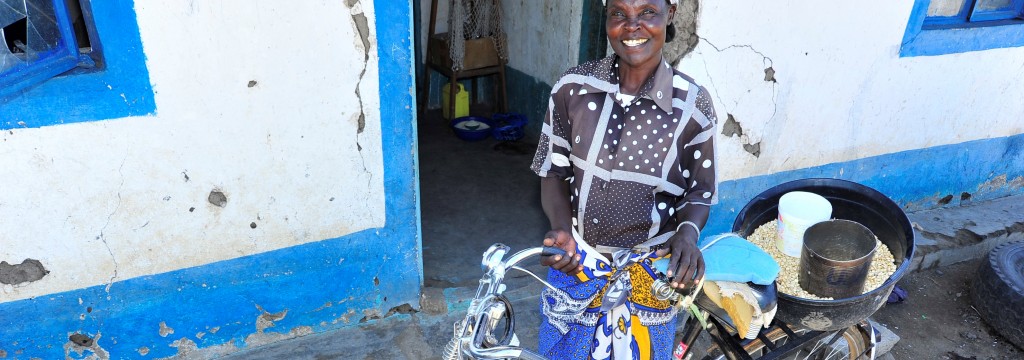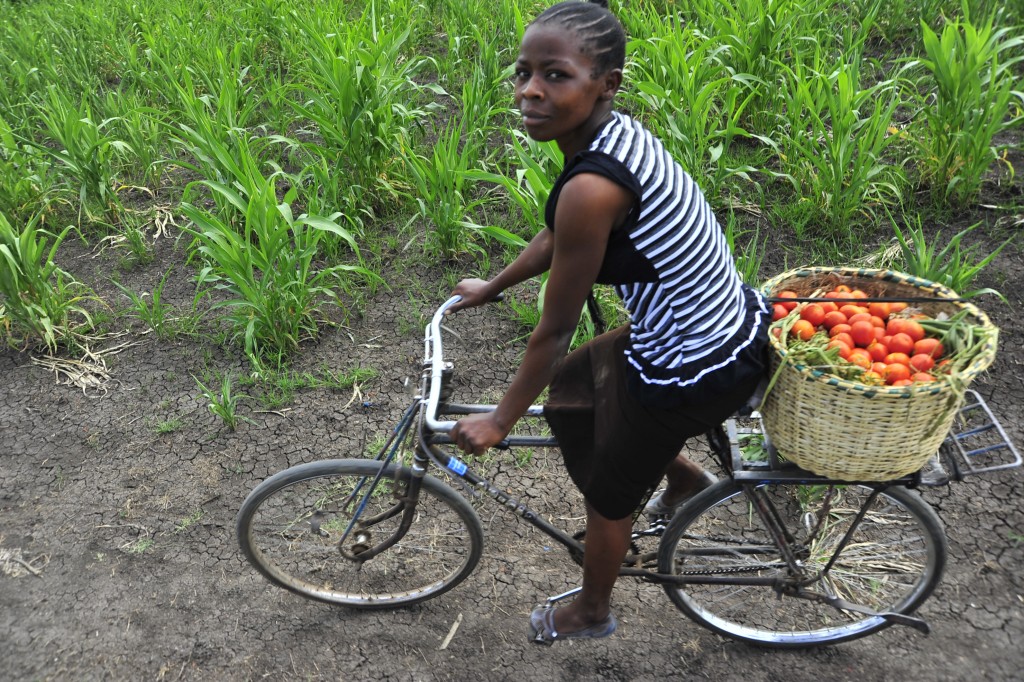The bicycle plays an important actor in improving food security and can play a crucial role in stopping hunger and poverty.
Small-scale farmers produce the majority of food in developing countries. A major problem for these farmers is however, limited or no access to markets and therefor the inability to sell their crops. The main reason is that they don’t have transport options and cannot afford the costs of transportation. As a consequence, a far-reaching and crucial gap exists right at the beginning of the food supply chain. And on top of that farmers will not spend more effort in food production when they do not have fair options to sell their surplus. Because now their surplus will go to waste when storage and transport options are not available.
Limited, unequal access to markets leads to low production
One important reason causing the limited access to markets is that farmers don’t have transport options and cannot afford the costs of transportation. In the current food supply chain the distance to markets is far and ways to access those markets is inadequate. In East Africa, only 25% of the rural population can reach a town with more than 50,000 citizens within two hours. Due to this lack of convenient access to markets (with consumers and vendors) for both farm input, and selling of their surplus, farmers are likely not to sell their crops. It is estimated that at most 40% of crops is marketed and only 1/3 of the farmers sells to markets. In some cases the farmers end up selling their produce for throw-away prices to middlemen not able to make it a sustainable production. On the other hand by not having timely access to vendors for farm inputs, they are not able to cultivate large pieces of land anyway to enable them to grow enough food for subsistence and market needs. So inequitable access to markets leads to low productivity as farmers will not expend more energy, money and time to cultivate large pieces of land to grow enough food for subsistence and market needs.
A bike makes the difference
To increase the farmers’ access to markets we developed our Bike4Work bicycle interventions to give farmers access to bicycles (and trailers). Simple, practical assessments (by CooP-Africa) of the bicycle intervention indicate that Bike4Work is very effective. Bike4Work has a great economic outcome on the agricultural investment: outcomes in terms of increase of disposable income of the farmers as well as an increase of food production and regional distribution of food. So Bike4Work’s grass-root level intervention contributes to bridging the gap between farmer and consumer. Providing affordable sustainable means of transport could therefore reduce hunger and poverty.
By donating $150 we can empower a farmer with a bicycle and contribute to ending hunger and poverty. Click here to make your contribution to end hunger and poverty.
Scientifically underpin the role of a bicycle in food security
And on the other hand CooP-Africa aims to find funding to set up a research to gain insight and knowledge on to what extend improved farmers’ access to a bicycle results in more food security and poverty reduction. As such it will enable us with support from civil society, farmers’ interest groups, private companies and government bodies (potentially with investments from financial institutions) to scale up the concept that already turned out to be successful at grass-root level. The outcome of the research could be part of a new solution (business model) for solving food insecurity in East Africa in which low-cost, sustainable mobility plays a key-role. More info: info@coop-africa.org




No Comments to "World Food Day: the role of a bicycle in food security"